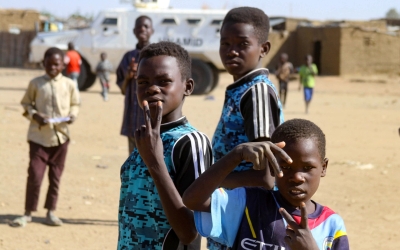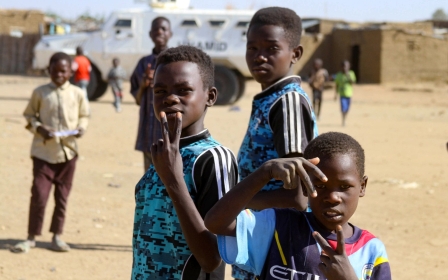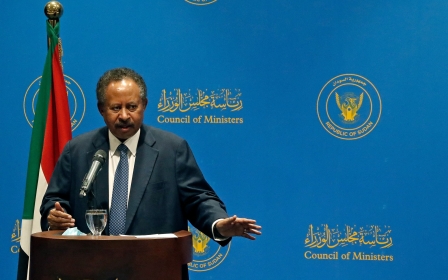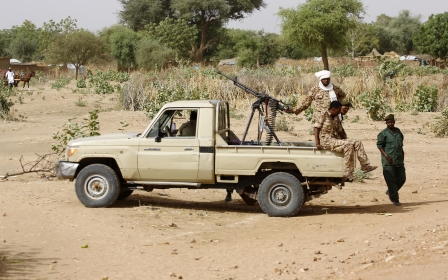Sudan dissolves cabinet to bring ex-rebels into lineup
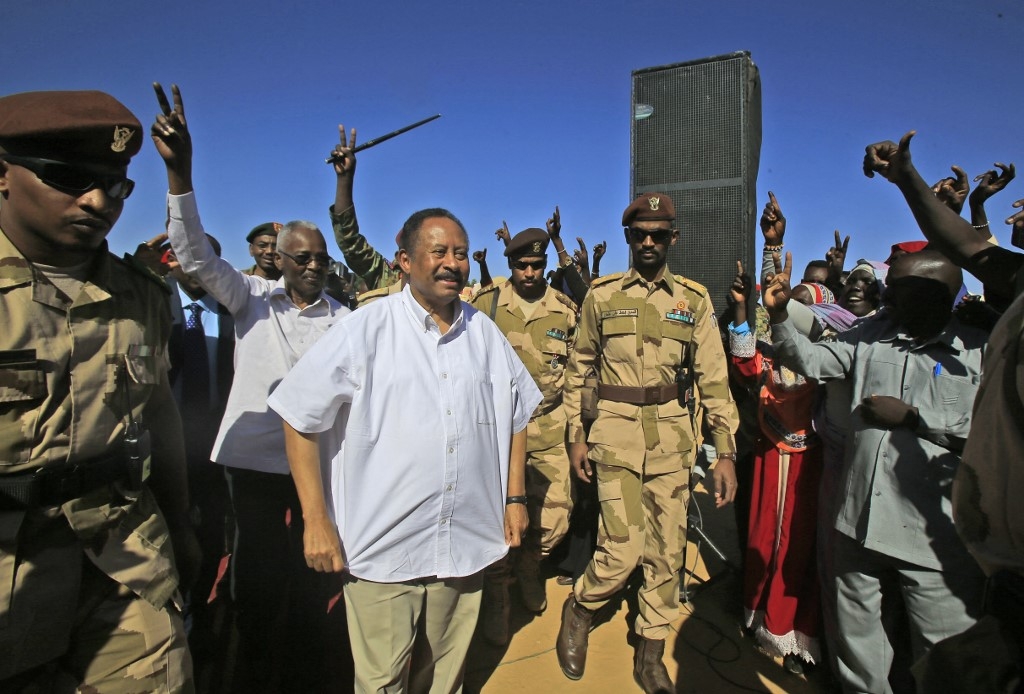
Sudan's ruling body said on Monday it would announce a new cabinet to include ex-rebel chiefs as ministers, following a peace deal in October aimed at ending decades of war.
Prime Minister Abdalla Hamdok dissolved the cabinet late on Sunday to make way for a more inclusive lineup, with the new government expected to bring in seven ministers from former rebel groups.
Two other ministers are expected to be selected from the military, with the remaining 17 coming from the Forces of Freedom and Change group, which plays a key role in Sudanese politics.
The group was the driving force behind the anti-government protests that led to the April 2019 ouster of longtime autocrat Omar al-Bashir.
Last week, Sudan appointed three ex-rebels to the ruling sovereign council, the civilian-majority ruling body led by General Abdel Fattah al-Burhan, which was installed months after Bashir's ouster.
Hamdok will "make the cabinet announcement on Monday 8 February," Sudan's ruling body said in a statement.
It follows the peace deal last year between the transitional government and the Sudan Revolutionary Front (SRF), a coalition of five rebel groups and four political movements, including the troubled western region of Darfur.
Fighting in Darfur since 2003 has left at least 300,000 people dead and 2.5 million displaced, according to the UN.
Despite the October peace deal, violence continues in Darfur, a vast and impoverished region awash with weapons, where bitter rivalries over land and water remain.
Violence between ethnic groups in West Darfur State, near Chad, erupted days after the withdrawal of a United Nations peacekeeping force on 31 December after 13 years.
It quickly spread to South Darfur and other areas, killing more than 200 people and wounding over 300 others, severely undermining the Sudanese transitional government’s promise that it could protect its citizens in the war-torn southern province.
The most powerful of Darfur’s rebel groups, the Sudan Liberation Movement - Abdul Wahid (SLM-AW), had refused to settle terms with Khartoum, and a huge vacuum has now been left by the UN mission’s withdrawal.
Multiple crises
Additionally, the new government will also have to tackle a dire economic crisis.
Sudan's economy was devestated under Bashir by decades of US sanctions, mismanagement and civil war, as well as the independence of oil-rich South Sudan in 2011.
Galloping inflation, chronic hard currency shortages and a flourishing black market remain pressing challenges, with protests in recent weeks at the worsening economy.
The government will also have to tackle stormy relations with neighbouring Ethiopia, amid both border tensions and long-running negotiations - along with Egypt - over the controversial Grand Ethiopian Renaissance Dam on the Blue Nile.
Furthermore, some fear the outsized power of the army over political affairs and contend that affiliates of the Bashir regime have played a role in undermining Hamdok, who survived an assassination attempt last March, and his civilian cabinet.
Middle East Eye delivers independent and unrivalled coverage and analysis of the Middle East, North Africa and beyond. To learn more about republishing this content and the associated fees, please fill out this form. More about MEE can be found here.


